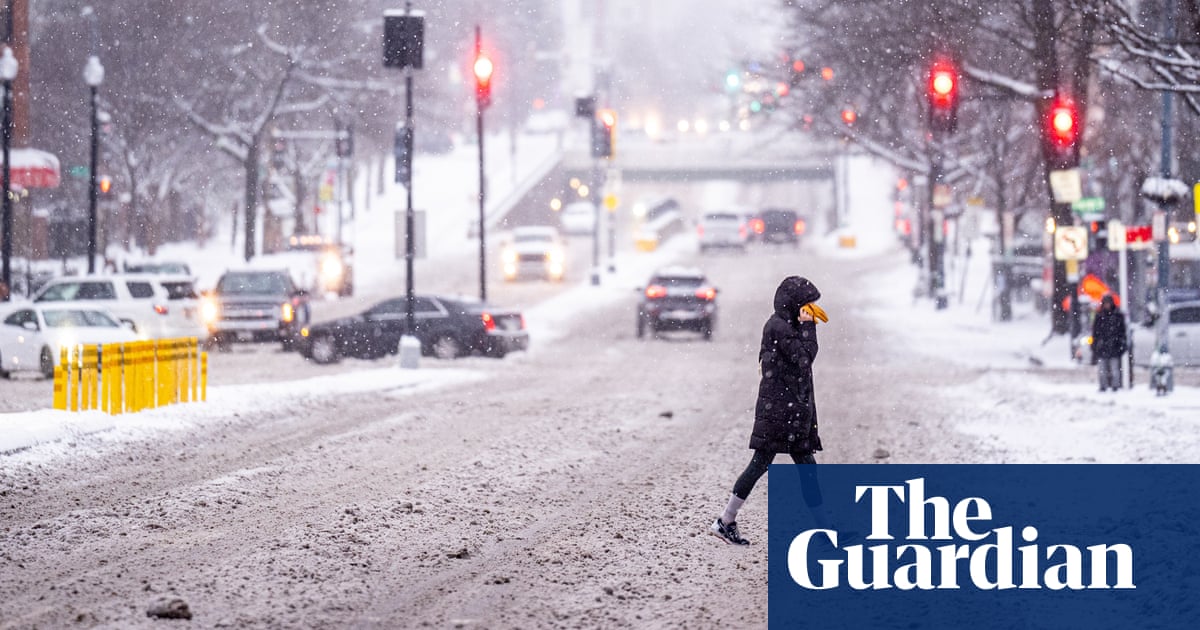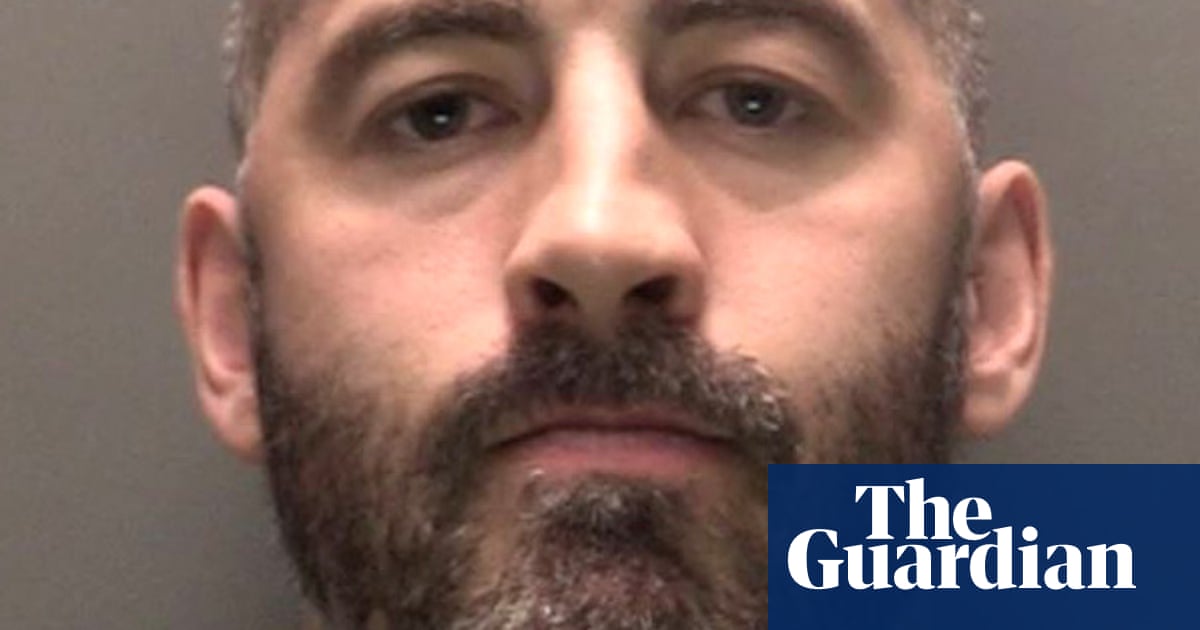From a few points on the periphery between Israel and Gaza, it is possible to see the bombed-out ruins of the besieged Palestinian territory; every so often, the boom and thud of airstrikes and artillery fire send plumes of grey and white smoke into the wide autumn sky.
For most onlookers, the scene is apocalyptic – but for rightwing Israelis who want to resettle the strip, it is a promising new horizon. Once dismissed as the pipe dream of fringe extremists, the idea is gaining momentum thanks to Israel’s military success in Gaza and political support from Benjamin Netanyahu’s far-right coalition.
Last week, near Be’eri, a border kibbutz devastated by the Hamas attack of 7 October 2023, the pro-settlement organisation Nachala held a “Preparing to Resettle Gaza” conference, laying out its vision for the strip’s future. The event was given a green light by the Israeli military despite the fact the area is still technically a closed military zone. Several hundred people showed up, including government ministers and Knesset members.
The atmosphere at the two-day conference was festive, marking the Sukkot harvest celebration: there was singing and dancing, and popcorn and candy floss. The area was awash in the blue and white of the Israeli flag, and most of the men attending carried pistols or rifles.
Adults took part in planning sessions in which speakers pointed out strategic areas on maps of Gaza, or milled about stands representing rightwing political parties and the Jewish supremacist group Lehava. Children enjoyed a puppet show and petting zoo.
“We plan to take what we have acquired in the years of settling Judea and Samaria and to do the same thing here in Gaza,” Nachala’s chair, Daniella Weiss, a veteran of the settler movement, told those attending, using the Israeli nomenclature for the occupied West Bank.
“I want to tell you now, that in less than a year, you can call and ask me: ‘Did you succeed in fulfilling your dream?’ And the answer will be yes … Each of you will witness how Jews go to Gaza and Arabs will disappear from Gaza.”
The Palestinian population of Gaza would “go to different countries of the world,” she said, without elaborating on how or why.

The Sukkot conference was the third big event this year promoting the return of settlers to Gaza, despite the fact that the movement does not have mainstream support among the Israeli public.
Israeli settlement building in the occupied territories is illegal under international law and in effect kills off a two-state solution. Settlers argue they have religious and historical ties to the land, and that settlements are necessary for security. Increasing political backing at home, as well as from Republicans and evangelical Christian groups in the US, has allowed settlement expansion in East Jerusalem and the West Bank to rocket in recent years, choking Palestinian life.
The rightwing movement is arguably at the peak of its powers. Netanyahu returned to office two years ago at the helm of the most extremist coalition in Israeli history. His cabinet features the national security minister, Itamar Ben-Gvir, and the finance minister, Bezalel Smotrich, ultra-right politicians eager to provide government backing for settler activities. Over the past year of war with Hamas, several members of the prime minister’s Likud party have also openly endorsed resettling Gaza.
Amira Hass, the well-known Ramallah-based Israeli journalist and author, said: “I say this not as a prophecy, but as a warning: the idea of resettling Gaza must be taken very seriously. When settlers first talked about going to Homesh [in the West Bank], and Sinai, and everywhere else, people didn’t believe them. But the movement is one of the best organised political forces in Israel for the past 30 years. We are not talking about a bunch of dreamers … these are people with vast political and financial resources and a proven track record.”
Last December, Harey Zahav, a housebuilding company operating in Israeli settlements, released an image showing sketches of new homes among the destroyed remains of housing blocks along the Mediterranean shore in Gaza.
“A house on the beach is not a dream!” the advertisement said, adding the company was “working to prepare the ground” for a return to Gush Katif, a settlement in Gaza forcibly evicted by the military after Israel’s unilateral withdrawal in 2005.
Much of the Israeli right maintains that withdrawing from Gaza was a strategic mistake that allowed Hamas to amass power.
In January, thousands of people, including government ministers and Knesset members, attended another Nachala gathering in Jerusalem. A month later, rightwing activists stormed the Erez crossing into northern Gaza, erecting a symbolic “outpost” before the army removed it, and in May, thousands took part in a Nachala-led rally in the border city of Sderot.
The Sukkot conference comes a year into Israel’s war on Gaza and as it becomes clearer that Netanyahu’s refusal to outline a “day after” plan for the strip is likely to result in permanent military reoccupation. The ferocious renewed Israeli offensive on the northern third of Gaza, now in its fourth week, appears to be designed to force the remaining population to leave, leading to accusations of the war crime of forcible transfer.
The Israeli military and government deny systemically trying to empty the area, but the operation has been enthusiastically embraced by the settler movement.
“In these critical days, we want to raise awareness that only settlements [in Gaza] will bring about the security we had 20 years ago,” one attender, Itzik Fitoussi, who was evicted from Gaza in 2005, and lost a son, who was in the military, on 7 October 2023, told Reuters.
Resettling Gaza is not official Israeli policy, and the prime minister has repeatedly said that the idea is “unrealistic” and “never in the cards”. Nonetheless, senior Israeli defence officials recently told the Israeli daily Haaretz that the government is planning to annex large parts of the Palestinian territory.
Speaking from her home in Kedumim, a settlement near Nablus, Weiss, a spry and animated 79, said she and others in Nachala had already begun to form “nuclei” keen to establish new settlement communities in Gaza. The groups were made up of former Gaza residents as well as recruits apparently newly seduced by the idea, she said.
“We have six such groups, and each one includes hundreds of families,” she said. “As of [six weeks ago], we had more than six or seven hundred families enrolled.”
Since the war in Gaza began, there has been renewed international focus on Israeli settlements and settler violence in the West Bank. Unprecedented pushback has come in the form of US, British, and EU sanctions.
Weiss, under sanctions from Canada herself, says she is undeterred by criticism from abroad, pointing to what she claims is her personal success of establishing 300 settlements in the West Bank, where 500,000 Israeli settlers now live.
“I took all my experience from 50 years of dealing with settling the mountains, and I’m mobilising it to create a new reality in Gaza,” she said. “You think what I am saying is imaginary, some kind of fantasy. It is not.”

.png) 2 months ago
20
2 months ago
20













































